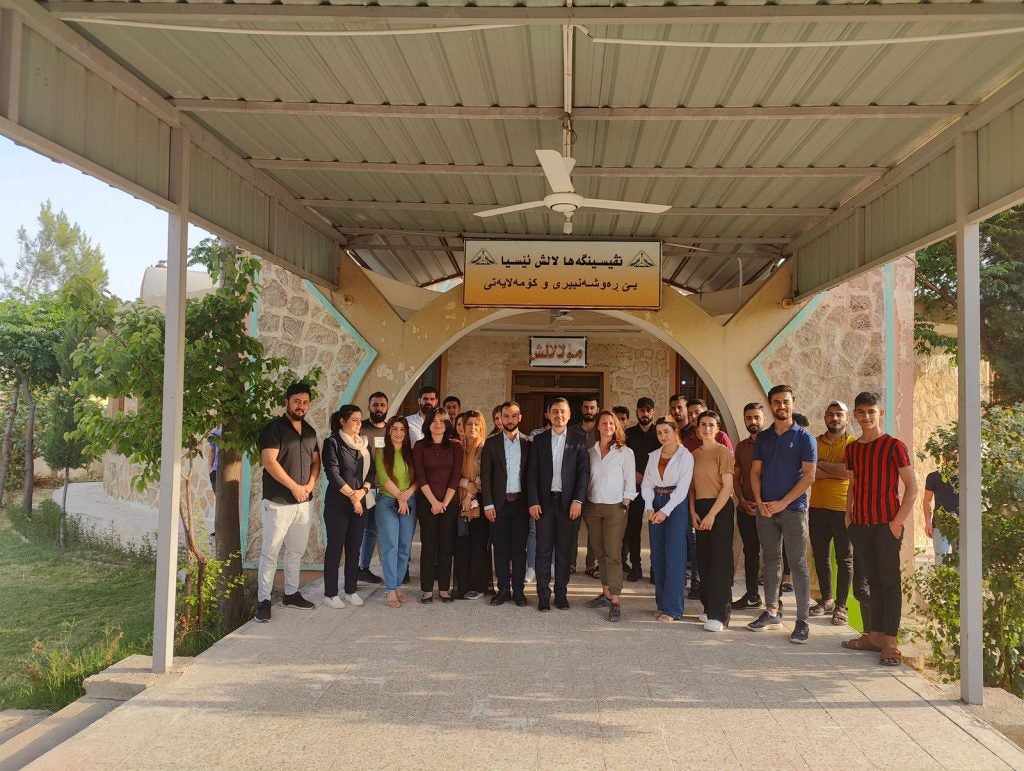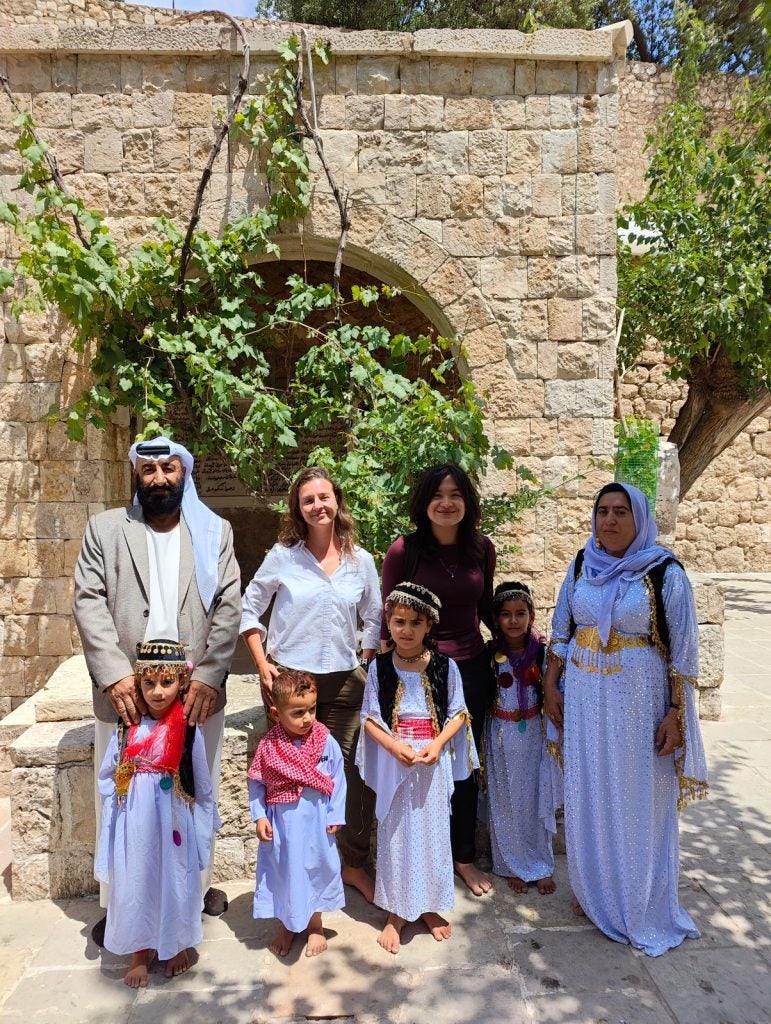Two Kurdish Political Studies Program Dr. Najmaldin Karim Research Fellows Visit Kurdistan
Written by Léa Faure, Ph.D. in Security Studies

In May 2023, two students affiliated with the Kurdish Political Studies Program (KPSP), Hannah Barnes and Myli Sangria, traveled to Kurdistan to expand their horizons and research interests.
First, could you both tell me more about your background?
SANGRIA: “I am a junior studying international relations and English literature. I mainly focus on Yezidi studies and I am working towards a thesis while doing a summer undergraduate research fellowship for which going to Iraqi Kurdistan, especially the areas of Duhok and Shekhan, was really helpful for my fieldwork.”
BARNES: “I am a senior with a major in political science – international relations but I am also getting three certificates: Intelligence and National Security, Kurdish Studies and Interfaith Dialogue.”
Can you tell me more about the purpose of your trip to Kurdistan?
SANGRIA: “I was personally doing more fieldwork. Hannah was there for two weeks, I was with her and then I spent an extra week in Duhok with the Yezidis. We did a panel with the Erbil consulate in a Yezidi village which was about the college experience and how to best prepare language skills accreditations to study in the U.S. That was a really interesting panel in getting to meet people and let them convey their narrative, perspectives and concerns about various subjects. We also met with various universities with interested students like Soran University and the University of Sulaimani. Among other things, we also visited various cities to see their historic sites like Akre, Amedi and Bahdinan Gate.”
BARNES: “For me, I spent the Spring semester in Armenia. I was there on a Boren Scholarship to learn Kurmanji Kurdish and I had some extra time available to travel so that is how the Kurdistan trip came about. I had made a connection with the U.S. consulate office in Erbil and the public affairs officer told me I could go there. I then got connected to Myli who was also going. For me, it was really more of an exploratory trip on a more casual level in terms of self-enlightenment rather than specific research. I actually did not have much exposure to Yezidis until I did some work with them while I was in Armenia so it was fresh in my mind and I wanted to visit their holy temple in Lalish which also inspired me to take this trip. I also went to Halabja: they have a sort of monument there, a small museum dedicated to the events of March 16th 1988.”
Myli can you tell me more about your research?
SANGRIA: “For my research, I spent the rest of the duration of my trip between Lalish and Shekhan as well as in this Yezidi area called Sharya. I also visited various IDP camps to visit the friends of a translator and friend of mine there. I got to stay in IDP camps and villages while being able to oversee how areas of Lalish were being reconstructed or renovated. I got to also visit various shrines, which was interesting to be able to listen to the caretakers at the shrines explain what they are doing and why. This was a great perspective to gain.”
Hannah, while self-enlightenment was your first priority, how will you use your travel for research?
BARNES: “I do not think my current thesis research will directly relate to that trip. However, when I was in Armenia and met some Yezidis, I visited their temple outside of Yerevan which is the largest Yezidi temple in the world. Because of my Interfaith Dialogue certificate, I just really love to go and meet people, see how they live, how they dress, how their different traditions are, etcetera. It just really helps color my views of everything, so it was nice for me to do that from the interfaith dialogue perspective and the Kurdish Studies background I have. For me, I love to do and see things in person and to really feel it as opposed to simply reading about it which was the main benefit of this trip.”

If you both could give me one highlight of your trip, what would it be?
SANGRIA: “Mine would be walking with my friend at night in Sharya and just seek each other’s advice about different things and hear different perspectives. I have so much respect and love for my translator and friend, and I cannot stress how much of an impact he made on my outlook towards so many different things.”
BARNES: “For me, I would say a highlight would just be the fact that I got to travel the entire country. I went to all the provinces and everyone was so welcoming. A lot of people that are not from there who knew I was visiting were wondering about my safety, which is the reaction you get from people 90% of the time but the actual experience of it is that everyone was so welcoming. They all wanted to talk to me, they want to practice their English, they love America and want to come here. This appreciation of Americans was really impactful for me as I appreciated the sentiment, despite not having had anything to do with their experience. I hope to help build and maintain these relationships.”
